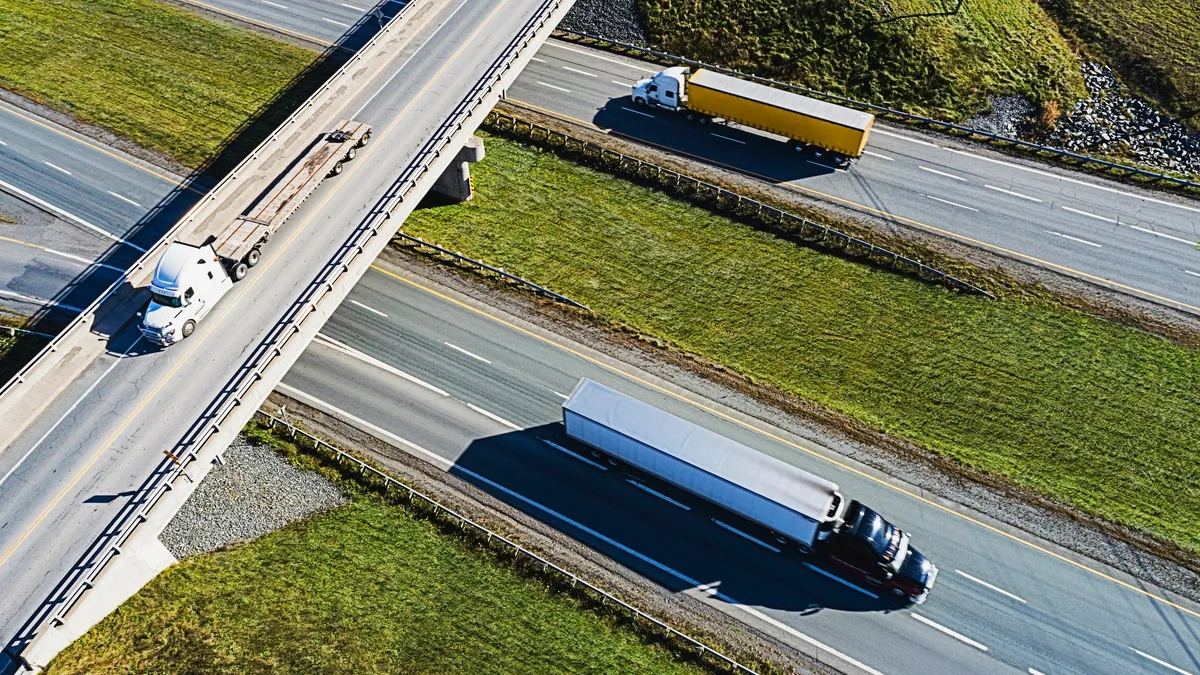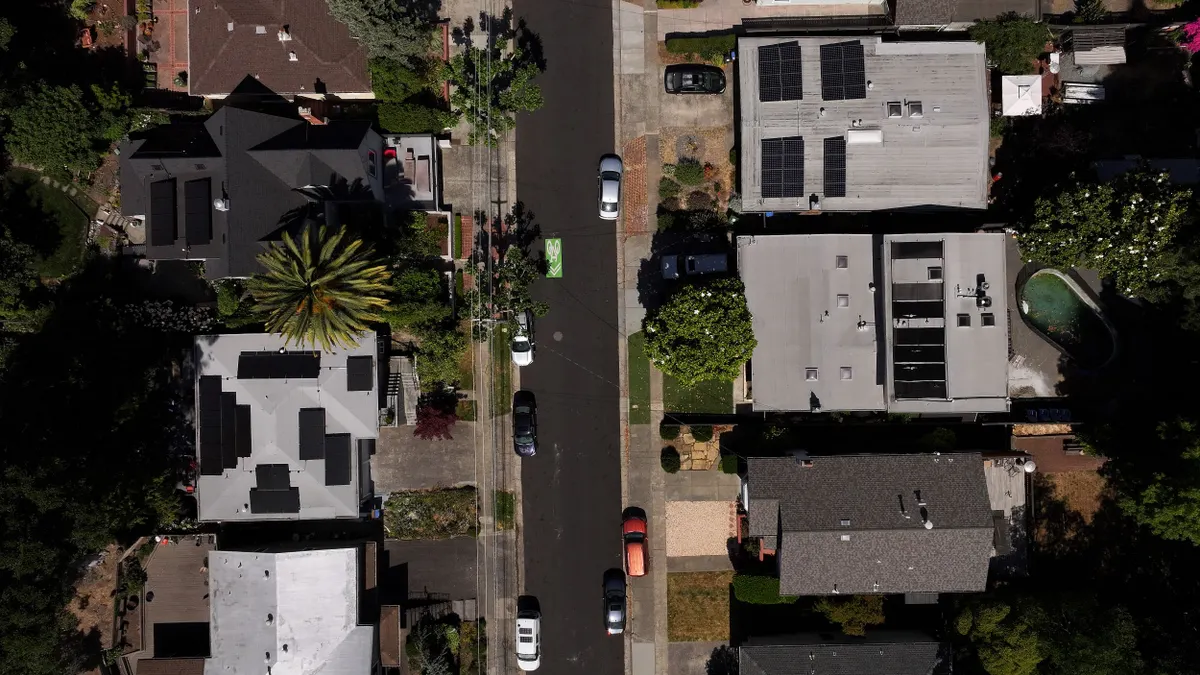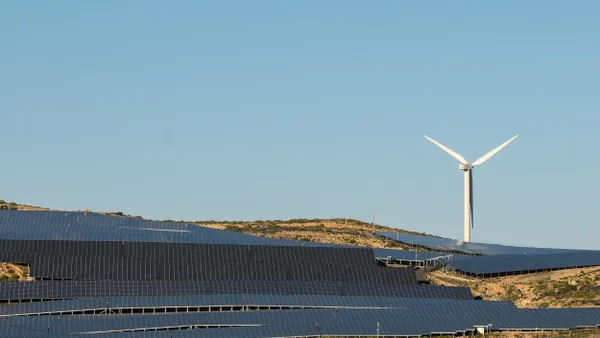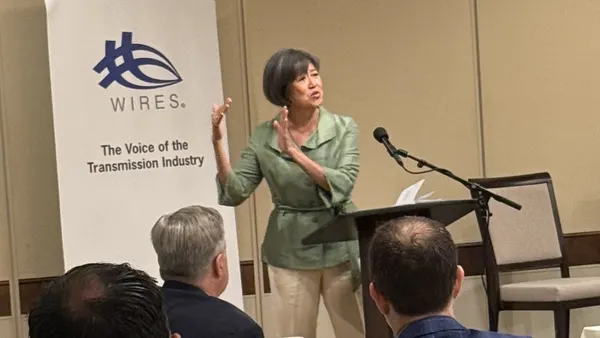Dive Brief:
- The NextGen Highways initiative, which launched as a public-private collaboration focused on Minnesota, will expand its mission to advocate nationally for co-location of electric transmission and communications infrastructure along existing public rights-of-way, or ROWs, the group said Thursday.
- The initiative’s goal is to enable the adoption of electric vehicles, renewable power and building electrification through a national coalition that includes utilities, state energy officials, renewables advocates, equipment manufacturers and grid modernization initiatives.
- The National Association of State Energy Officials will collaborate with NextGen Highways and NASEO President David Terry called the use of existing ROWs “a practical, expedient solution” to help states enable affordable and clean power.
Dive Insight:
The NextGen Highways approach aims to utilize existing infrastructure ROWs to speed development of a more modern electric grid.
A draft U.S. Department of Energy report in March estimated the United States could need about 47,300 GW-miles of new transmission by 2035, a 57% increase compared to today’s transmission system.
“Expanding and upgrading the U.S. transmission grid at a pace necessary to meet climate goals will require exploring all available options to ease the permitting and siting of such needed infrastructure,” American Council on Renewable Energy President and CEO Gregory Wetstone said in a statement,
The NextGen Highways national coalition includes ACORE, NASEO, the Solar Energy Industries Association, NextEra Energy, LS Power, the Union of Concerned Scientists, RMI, Smart Electric Power Alliance, and others.
The coalition’s approach “is an innovative and safe means of building a system that will benefit all of us,” said Chaz Teplin, a principal with RMI’s Carbon-Free Electricity Program. “We need to leverage our nation’s existing infrastructure as much as we can.”
NextGen secured funding in January from Bill Gates-founded Breakthrough Energy, in order to take its mission national. Members of the coalition say they plan to develop a list of “target states” where they will focus their initial efforts.














